When someone you love comes out as lesbian, gay, bisexual, transgender, queer, or is questioning their identity, it can bring up a range of emotions. You may feel proud, confused, uncertain, or worried for their wellbeing—especially if they’re struggling with mental health or considering gender transition.
“How Can I Support My LGBTQ+ Child or Loved One?”
Your acceptance, patience and willingness to listen is one of the most powerful forms of support you can give. Many LGBTQ+ people—especially trans and non-binary individuals—face discrimination, isolation, and mental health challenges. But research shows that family acceptance significantly reduces the risk of depression, self-harm, and suicide.
Here are some key ways to support:
-
Listen without judgement. Let them tell you who they are in their own words.
-
Use their chosen name and pronouns. This shows respect and validation.
-
Educate yourself. Learning about LGBTQ+ identities and transitions can help you understand what your loved one is experiencing.
-
Stand up for them. Challenge discrimination or misinformation when it appears—in your family, school, workplace or community.
-
Look after yourself too. It’s okay to feel uncertain or emotional. Support is available for you as well.
Support Services for Families & Loved Ones
We offer a range of services to help you navigate this journey:
-
One-to-one support – Speak confidentially with a trained professional who understands LGBTQ+ and transition-related issues.
-
Family support groups – Connect with other parents, carers or siblings in a safe, understanding space.
-
Workshops & information sessions – Learn how to support your loved one’s mental health, understand gender identity, and manage your own emotions.
-
Crisis support – If your loved one is in distress or you’re concerned about their safety, we can help guide you.
Understanding Mental Health & LGBTQ+ Identity
It’s important to know that being LGBTQ+ is not a mental illness. But the stress of discrimination, rejection, or hiding one’s identity can lead to serious mental health challenges.
You might notice signs like:
-
Withdrawal, low mood or anxiety
-
Self-harm or substance use
-
Anger or sudden outbursts
-
Difficulty at school, university or work
-
Changes in eating or sleeping patterns
If you’re worried about their wellbeing, don’t wait—reach out to us or encourage them to seek support.
Useful Family Resources
Here are some excellent UK organisations supporting families of LGBTQ+ and trans people:
-
Mermaids – Support for parents of gender-diverse children: www.mermaidsuk.org.uk
-
GIRES – Educational resources for families and schools: www.gires.org.uk
-
FFLAG (Families and Friends of Lesbians and Gays) – Parent-led support: www.fflag.org.uk
-
Beaumont Society – Family support, especially for partners of trans people: www.beaumontsociety.org.uk
-
LGBT Foundation – Family and relationship resources: www.lgbt.foundation
- NHS 111 OPTION 2 – Support for all mental health concerns for anyone at anytime.

